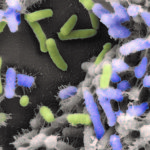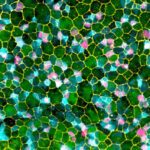Link to Pubmed [PMID] – 37951983
Link to DOI – 10.1186/s40168-023-01690-z
Microbiome 2023 Nov; 11(1): 252
Perturbations of animal-associated microbiomes from chemical stress can affect host physiology and health. While dysbiosis induced by antibiotic treatments and disease is well known, chemical, nonantibiotic drugs have recently been shown to induce changes in microbiome composition, warranting further exploration. Loperamide is an opioid-receptor agonist widely prescribed for treating acute diarrhea in humans. Loperamide is also used as a tool to study the impact of bowel dysfunction in animal models by inducing constipation, but its effect on host-associated microbiota is poorly characterized.We used conventional and gnotobiotic larval zebrafish models to show that in addition to host-specific effects, loperamide also has anti-bacterial activities that directly induce changes in microbiota diversity. This dysbiosis is due to changes in bacterial colonization, since gnotobiotic zebrafish mono-colonized with bacterial strains sensitive to loperamide are colonized up to 100-fold lower when treated with loperamide. Consistently, the bacterial diversity of gnotobiotic zebrafish colonized by a mix of 5 representative bacterial strains is affected by loperamide treatment.Our results demonstrate that loperamide, in addition to host effects, also induces dysbiosis in a vertebrate model, highlighting that established treatments can have underlooked secondary effects on microbiota structure and function. This study further provides insights for future studies exploring how common medications directly induce changes in host-associated microbiota. Video Abstract.






